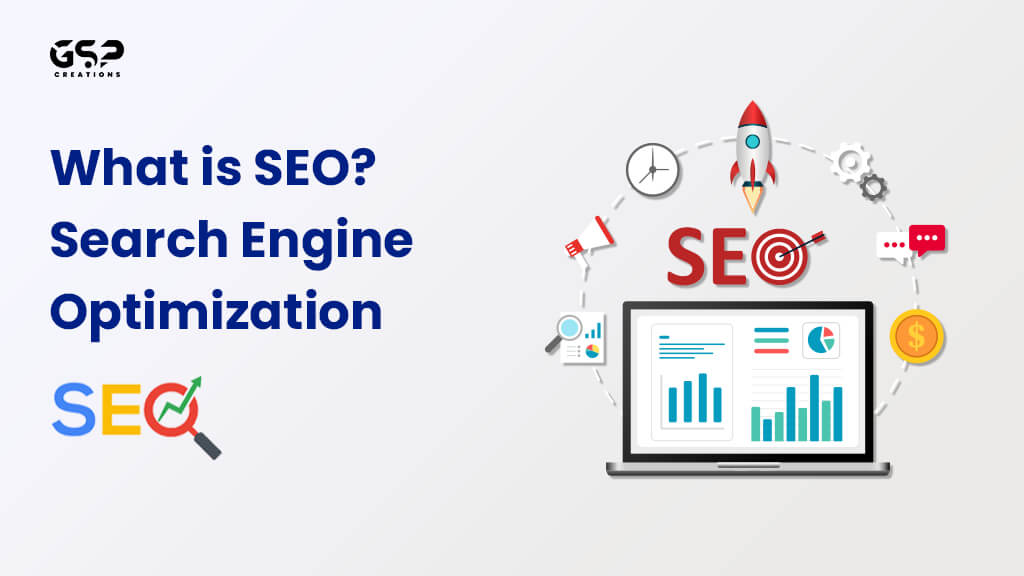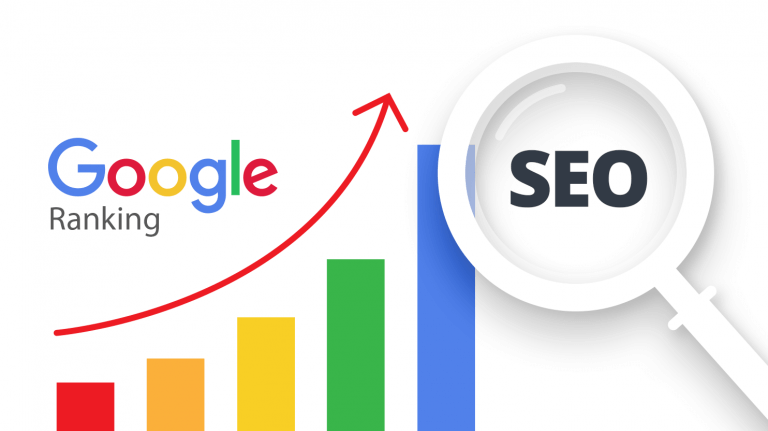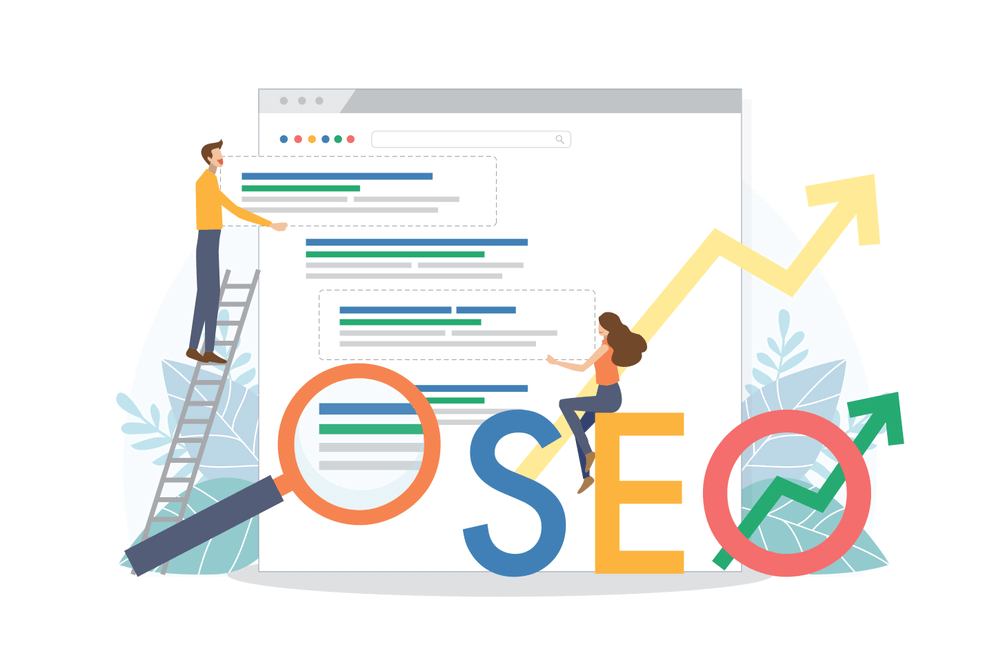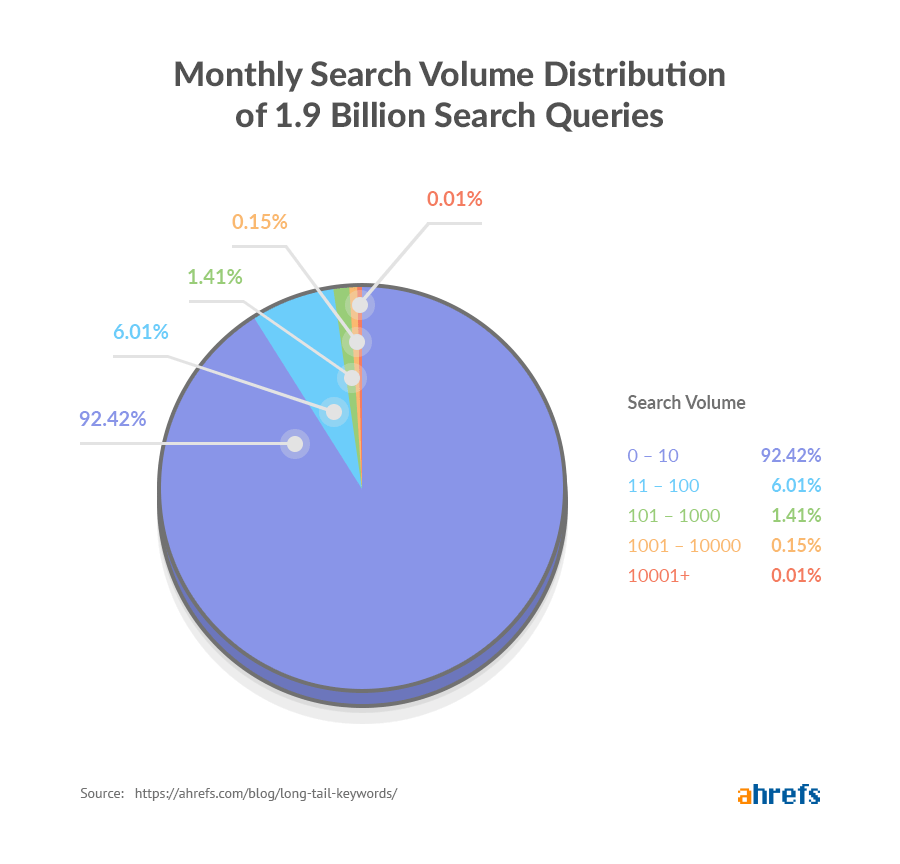Make Sure to Subscribe to Our Newsletter ✉️
Get the latest news and updates straight to your inbox.
Get the latest news and updates straight to your inbox.
Learn What is SEO (Search Engine Optimization) and How it will Improve your website ranking using this SEO guide

Disclosure: Our content is reader-supported. This means we may receive a commission if you click some of our links. Learn More, why it's important and how you can support us.
SEO is a short form of search engine optimization. It is a long-term process of improving the ranking of a website on search engines. The main aim of SEO is to earn higher rankings on search engine results pages (SERP) for specific keywords or search terms.
Though SEO is not easy, and it often requires a lot of time, effort and dedication to achieve desired results. SEO is important because it can help you achieve your business goals. For instance, if you want to increase the number of visitors to your website, you need to rank higher on search engines for relevant keywords.
Similarly, if you want to increase sales or leads, you need to rank higher for keywords that are related to your product or service. The most important factor in SEO is choosing the right keywords. Despite its importance, SEO is often misunderstood and misinterpreted. Some people believe that SEO is all about keyword stuffing or adding unnecessary keywords to web pages.
However, this is not the case. Keywords are the words or phrases that users enter into a search engine when they are looking for something. The right keywords can make all the difference in whether a website appears on the first page of results or the hundredth. SEO stands for search engine optimization, and it is a process of making your site better for both users and search engines.

Seo (Search Engine Optimization) is important because it helps websites get traffic from organic search results. The higher the ranking, the more likely people are to find the website. Organic search results are the web pages that appear as a result of a search engine query. They are also sometimes called natural search results.
Organic traffic is the traffic that comes to a website from organic search results. The ranking is the position that a website occupies on a search engine results page (SERP). A website’s position on a SERP is also sometimes called its rank.
Keywords are the words and phrases that people type into search engines to find websites. Search engines use algorithms to match websites with keywords. The algorithms take into account many factors, including the relevance of the website, the number of times the keyword appears on the website, and how popular the website is.
Traffic to your site is the number of visitors who come to your site from all sources, including organic search results, paid ads, social media, and referrals. Search engine results are the web pages that appear as a result of a search engine query. The order in which they appear is determined by many factors,
SEO (Search engine optimization) is the process of making a website easier to find by search engines like Google. The higher the ranking, the more likely people are to find the website. SEO success is a result of a combination of factors, including the quality and relevance of your content. It also includes your website’s architecture and design and your overall online presence.
While there is no guarantee of success in terms of SEO. Certain ranking factors can help to improve your chances of being ranked highly on search engine results pages. These include things like having keyword-rich titles and meta tags and using header tags to structure your content. And also optimizing your images and other media for search engines. If you’re looking to get started with SEO or boost your existing efforts, then Google and other search engines are a great place to start.
To understand how search engines work, we need to first understand what they are. Search engines are web-based tools that help us find information on the internet. They use special algorithms to rank websites and individual pieces of content based on a number of factors.
Crawling
Indexing
Ranking
It includes the number and quality of links pointing to the website or piece of content. And also the use of relevant keywords and the quality of the website’s overall design. To actually answer the question “how do search engines work,” we need to look at how their algorithms work.
Search engine algorithms are constantly changing and evolving. But they generally operate in similar ways. When you enter a query into a search engine, it will first scour its index for websites and pieces of content that match your keywords. It will then rank those results based on a number of factors like those mentioned above.

The end result is a list of results that hopefully contains what you’re looking for! Of course, this is a very simplified overview of how search engines work. If you want to rank your website or piece of content higher in search engine results pages (SERPs), you’ll need to learn about SEO.
Search engines are how we find information on the internet – they’re like a digital librarian, just like a physical library houses physical books and arranges them by topic. Search engines index webpages and arrange them by relevance to the topic (usually determined by ranking). You can think of ranking as a popularity contest – the more other websites link to a piece of content, the higher that piece of content will rank.
To determine relevancy, search engine algorithms look at two main things: the keyword and the title tag. The keyword is the word or phrase that a user enters into the search engine. The title tag is the HTML element that contains the title of a webpage (which is also usually the name of the webpage).
Search engine algorithms are complex and constantly changing. But at a basic level, they work by matching the keyword to web pages with similar keywords. They then look at the title tags to see if there is a match. If there is a match, they will rank that webpage higher than other web pages that don’t have a match.
Google, the leading search engine, processes about 6.5 billion searches every day. As a result, ranking better in Google search results can deliver significant traffic to your site.
As a result, it is critical to pay close attention to Google’s ranking variables. These characteristics, like Google’s search algorithms, are continually changing. They contribute to the delivery of the most relevant material for a better user experience.
Here are the most essential ranking variables you should be aware of, ranging from page load time to website security:
High-Quality content
Page loading time
Mobile-friendliness
Backlinks
User Experience
Site Security
Search engine optimization (SEO) and search engine marketing (SEM) are marketing tactics used by firms to reach their target audiences via search engine results.
The main distinction is that SEO focuses on optimizing pages to rank higher in organic traffic. This refers to site visitors who arrived from search engines like Google or Bing.

Meanwhile, search engine marketing (SEM) employs sponsored tactics to boost a website’s presence on search engines. Paid traffic is created by clicking on advertising generated by Google Ads or other networks.
While SEO takes time to produce consistent and long-term effects, SEM produces results almost immediately. You’ll rapidly see how many clicks and conversions your search engine advertising are producing.
A quick description of each of the four basic categories of SEO and its main goals may be found below.
On-page SEO is the process of optimizing a website for search engines. The goal of on-page SEO is to rank higher in search engine results pages (SERPs). A key part of on-page SEO is choosing the right keywords. Keywords are the terms that people enter into search engines when they are looking for information.
When choosing keywords, it is important to think about what people are actually searching for. For example, if you are a digital marketing agency, you might want to use keywords like “SEO”, “Search Engine Optimization”, or “Internet Marketing”.
Title tags are another important part of on-page SEO. Title tags are the text that appears on the search engine results page (SERP) when your website comes up. The title tag should be descriptive and include the target keyword.
Off-page SEO is also important for ranking higher in SERPs. Off-page SEO refers to activities that you do outside of your website to promote your website. It tells the search engine how well a site, business, or product is perceived by the audience.
As a result, a well-planned off-page SEO strategy can assist your website in increasing its page authority and ranking higher in search results. For example, link building is an important part of off-page SEO. Link building is the process of getting other websites to link to your website. The more links you have, the
Technical SEO is the practice of enhancing your website’s technical features to guarantee it fulfils the criteria of a search engine algorithm. This encompasses website performance optimization, mobile friendliness, and website architecture.
Technical SEO optimization will assist a search engine such as Google in quickly detecting and indexing your pages. As a result, it will reward a website with well-optimized technical SEO with a higher rank in search results.
Not only does technical SEO help enhance your search rankings, but it also influences your user experience. Users and search engines appreciate a well-structured site with a fast loading time and excellent security – all of which are important technical SEO elements.
Local SEO is the process of increasing the visibility of local companies in search results. It increases exposure and helps businesses to market their brands, products, and services to local communities.
When consumers search for “Petrol Pump near me” or “stores near me,” search engines use their IP addresses to determine their location and display relevant results. To rank well in local search results, you must optimize your local SEO.
Google displays local search results with a map, followed by three organic search results. For example, if a user searches for “restaurants in New York,” the SERP will offer three local businesses as the top results, along with a snippet of their locations on Google Maps.
Learning SEO from the ground up takes a lot of effort and patience. You’ll need materials to grasp the fundamentals of digital marketing and how search engines work, in addition to understanding the basics of SEO.
To get you started, we’ve collected a list of the greatest SEO learning tools available:
Best SEO Software
Working on search engine optimization entails a plethora of aspects and strategies. To keep up with the ever-changing search engine algorithms, SEO methods are continuously evolving.
A site with well-implemented SEO has a good possibility of appearing in the top search results and increasing visitors.
To guarantee you use the greatest SEO strategies, let’s go over the four forms of SEO we previously discussed:
On-page SEO focuses on content-related components such as image alt, title tag, and meta description on your web pages.
Off-page SEO entails operations that take place away from your websites, such as link building, outreach marketing, and guest posting.
Technical SEO entails SEO technical components that optimize the performance, compatibility, security, and usability of your website.
Local SEO – SEO tactics for increasing the visibility of your website in local searches and gaining more local visitors.
With that in mind, we hope you now have a better idea of how to increase the optimization efforts of your website. Keep in mind that SEO is a never-ending effort. To see long-term results, you must regularly change your SEO approach and incorporate the most recent SEO criteria and techniques.
Video Editing, Web Designing & Motion Graphics Intro, etc...
Join our subscriber’s list to get the latest news, updates directly in your inbox.